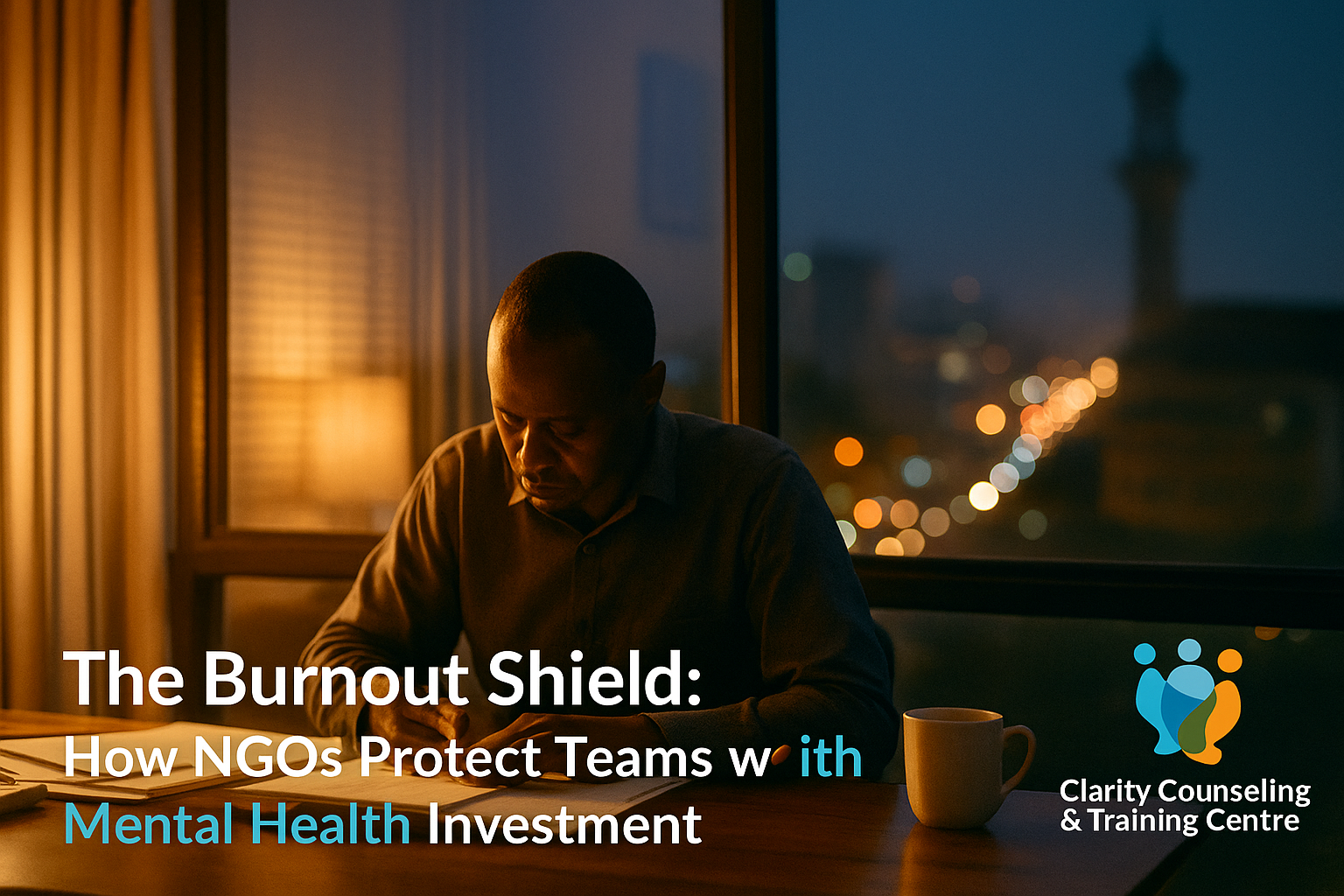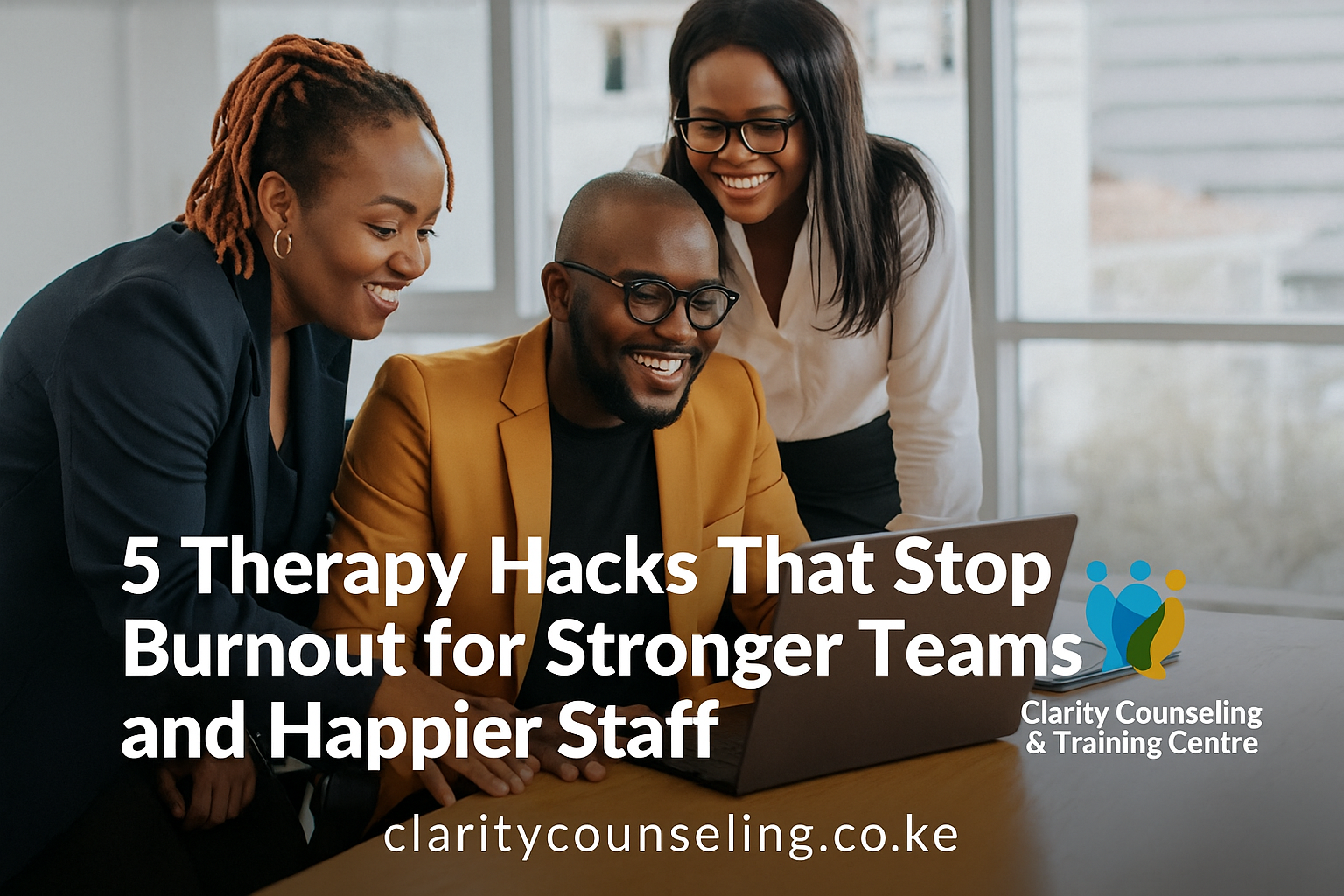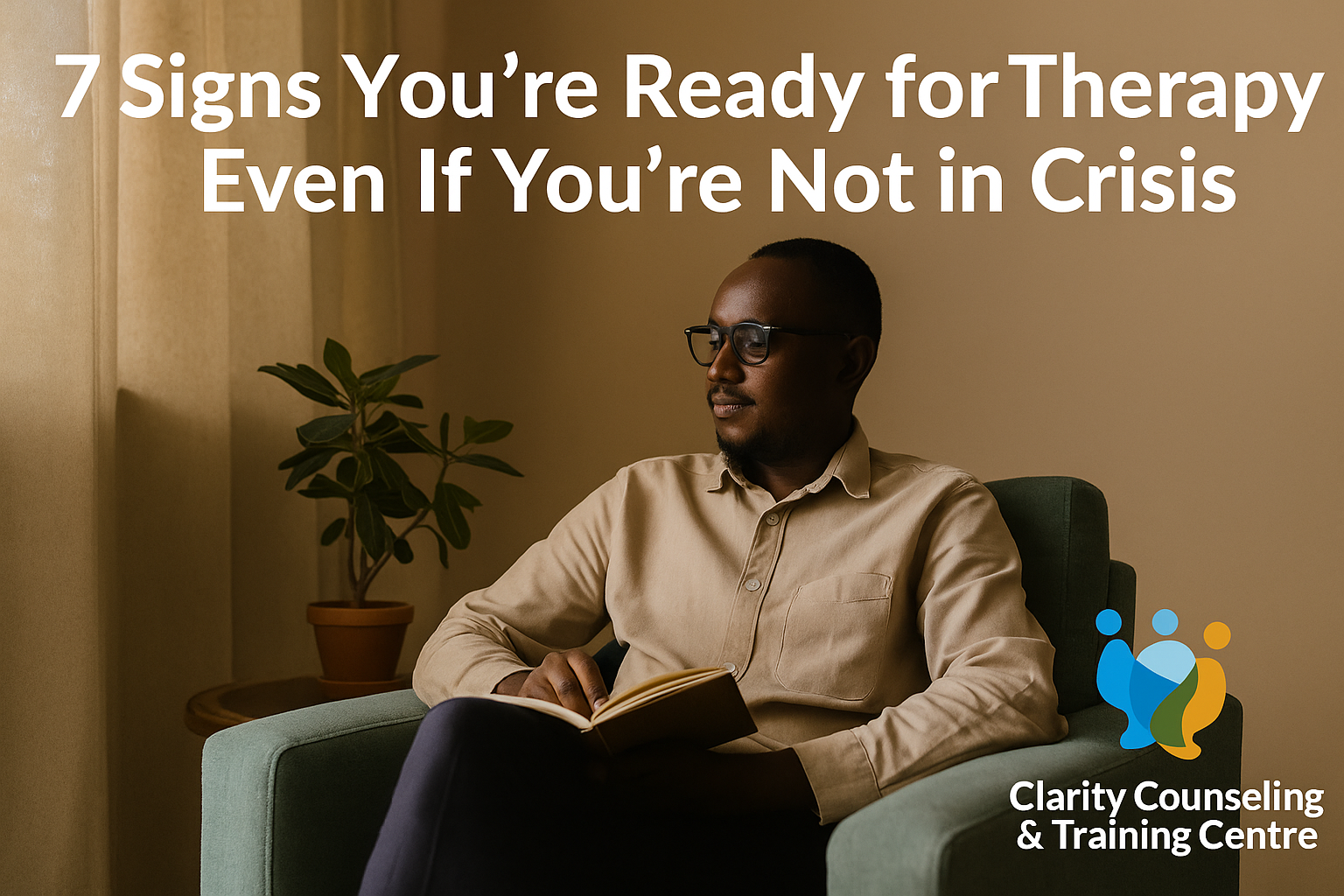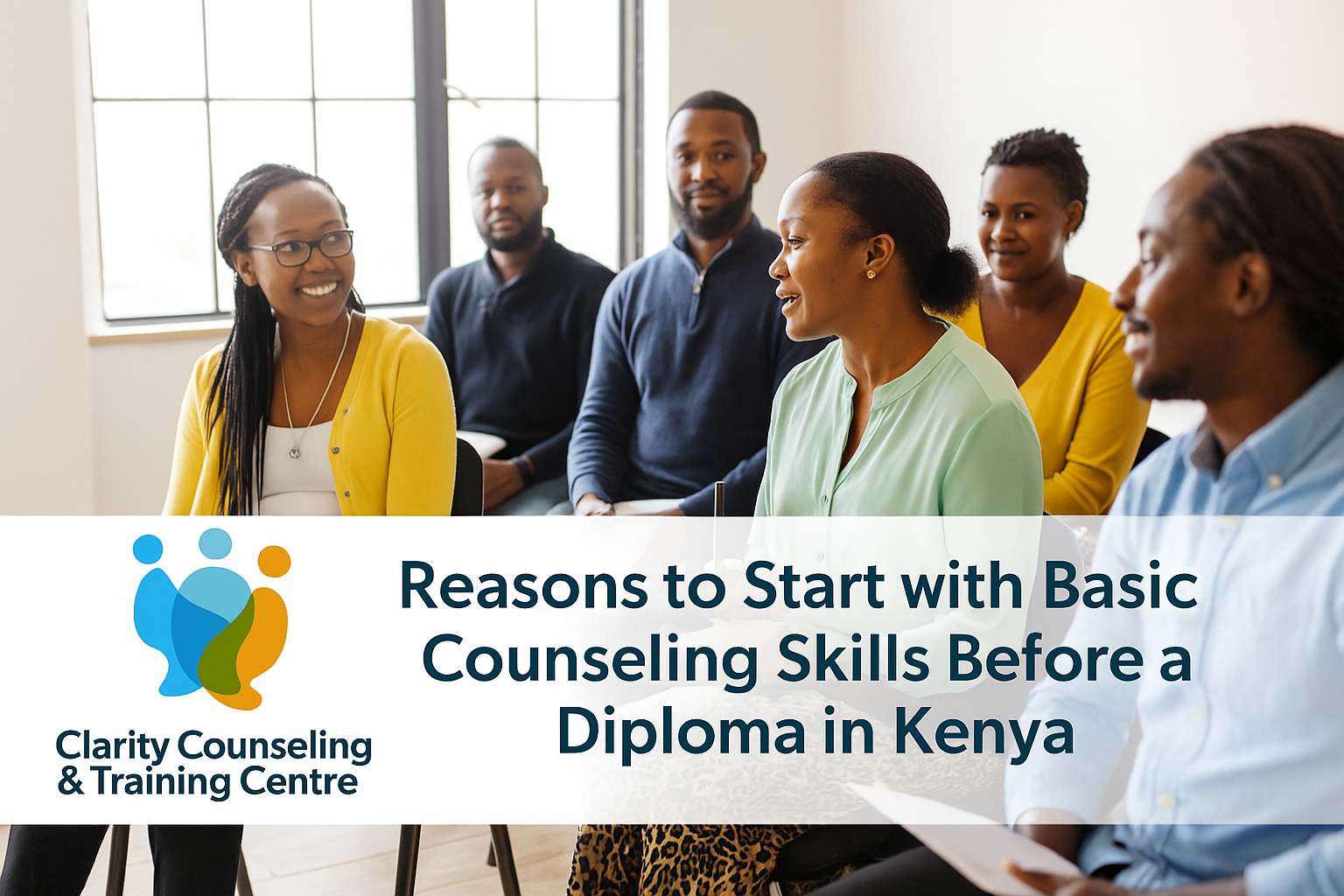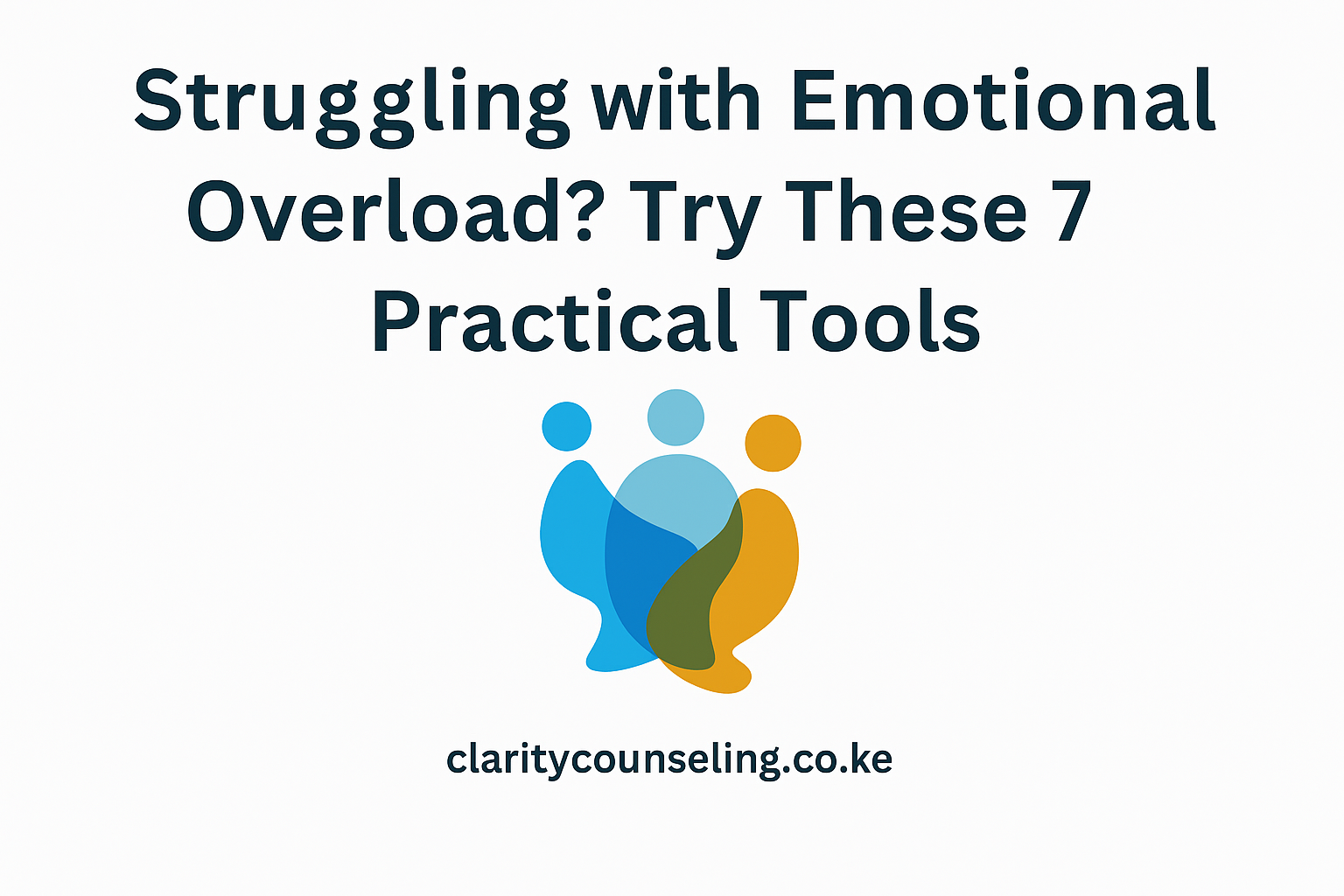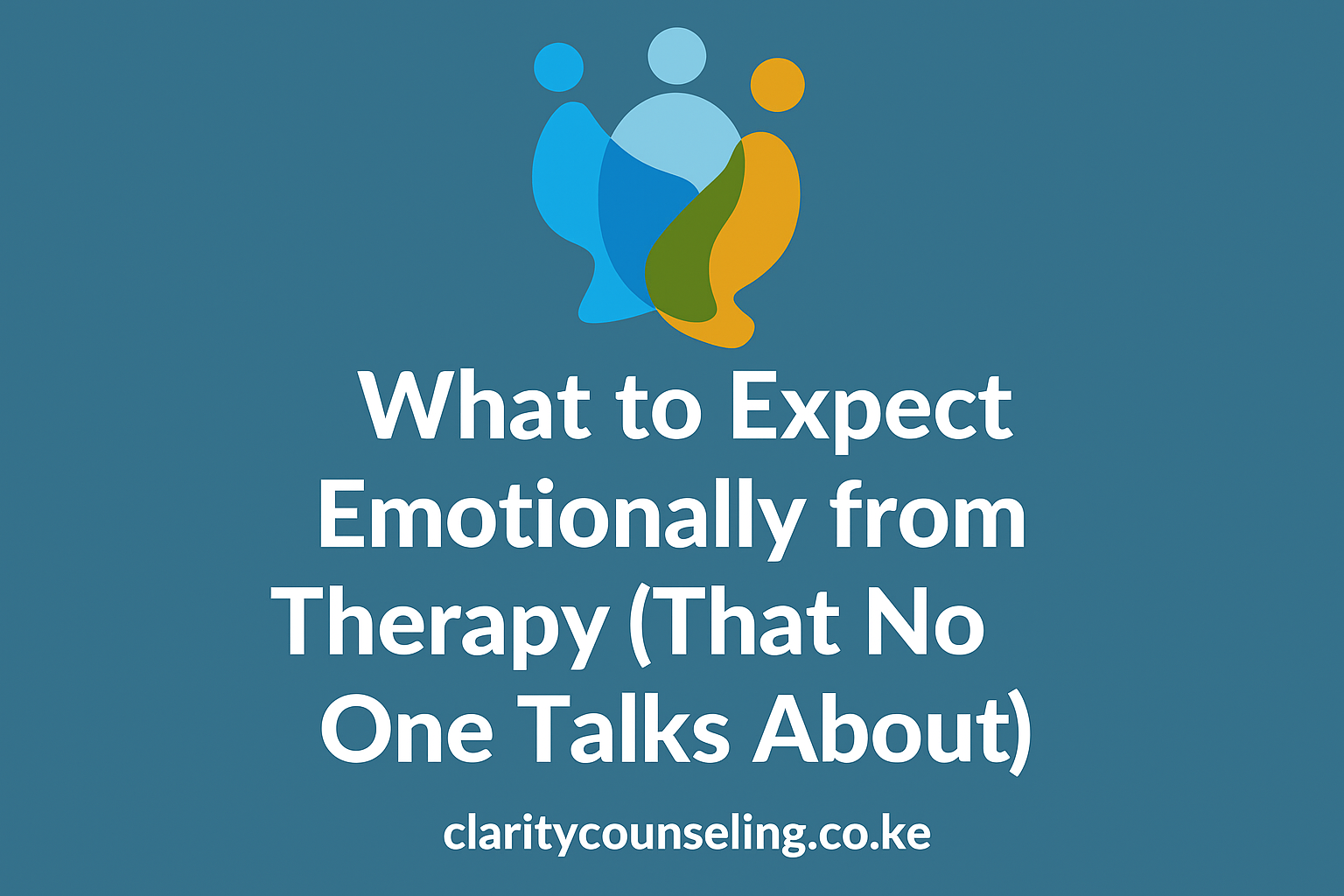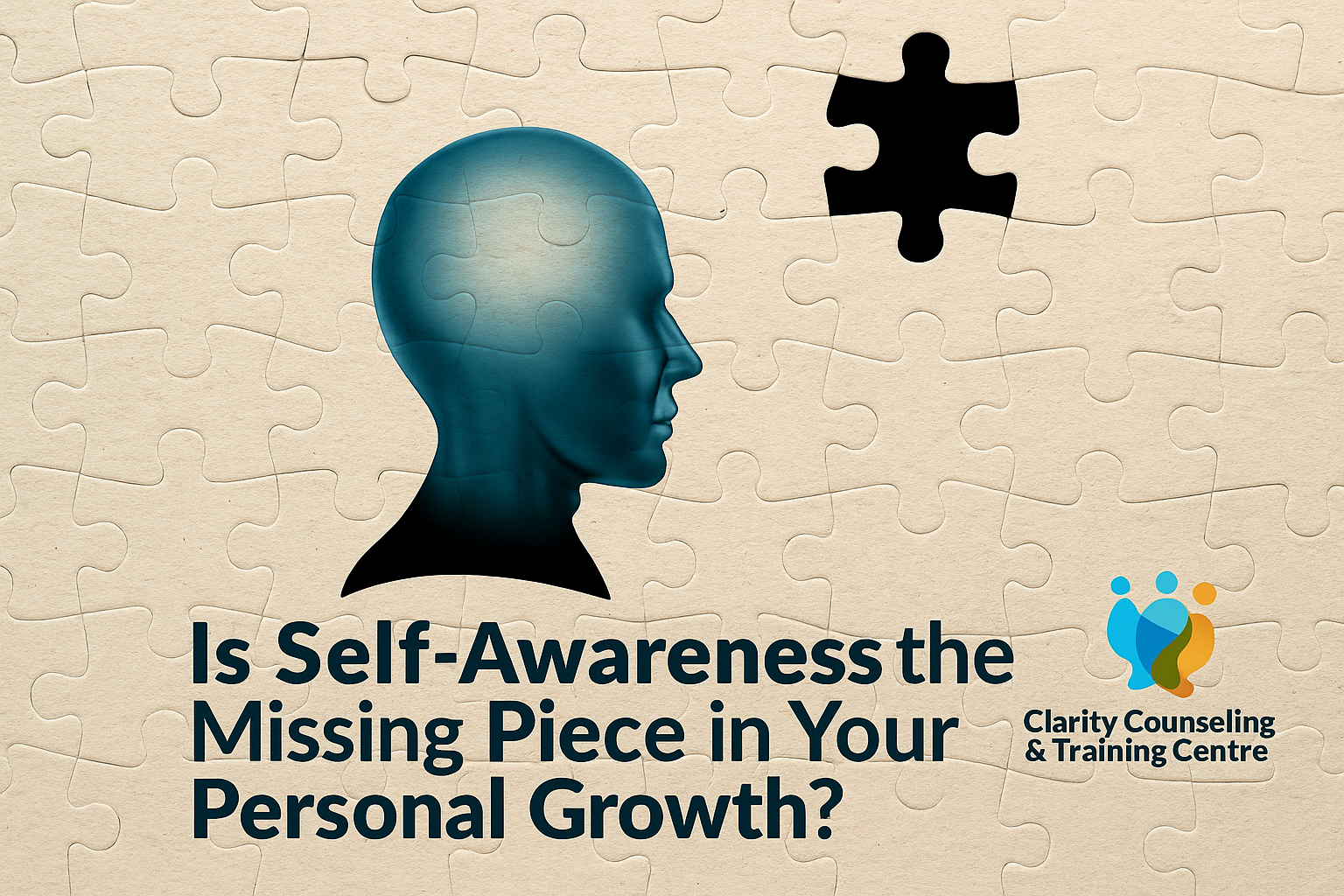7 Powerful Everyday Situations Basic Counselling Skills Give You an Advantage
The city is already awake. Honking, hurrying, hustling. Somewhere in Westlands, you’re clutching your favourite red Nescafé chipped mug of coffee that’s too bitter, scrolling through emails that all start with “Just checking in…”
When suddenly your colleague, you know the one with the loud perfume and sharper words? ;snaps at you.
You blink.
You want to respond, but the reply forms slowly, like a cough you’re trying to suppress.
You tell yourself, don’t react. But your heart is already chewing on the sting.
Later, while stuck in traffic, you replay the moment. Her tone, your silence, the heaviness that has no business following you into the day. We all know moments like this. At work. At home. With people we love.
Misunderstandings flare. Words land wrong. And suddenly, what began as a small exchange feels much bigger than it should.
But here’s something few people realize, the same communication tools professional counsellors use to help others heal aren’t limited to therapy rooms. They’re called basic counselling skills, though there’s nothing basic about them.
They help you listen with intention, speak with empathy, and respond instead of react. And when you begin using them, everything from how you parent, lead, or love starts to shift quietly. Let’s talk about seven ordinary moments where a little counselling wisdom could change everything.
1. When a Tough Morning at Work Turns Into a Lesson in Listening
You’ve been up since 5 am. The printer jammed. You skipped breakfast. Then out of nowhere, your colleague decides this is the perfect time to critique your work loudly in front of everyone. Something inside you starts to boil.
Your first instinct? Defend yourself. Maybe even fire back and say something clever, something that lands. But what if you paused just long enough to breathe and truly listen?
Then say, “It sounds like you felt left out of that decision?”
They blink.
Shoulders drop.
The tension deflates.
That’s the power of active listening which is one of the simplest yet most powerful counselling skills you can learn. The secret is not about agreeing but showing you care enough to understand.
In workplaces across Kenya, that one habit can turn office politics into real teamwork. Because when leaders and colleagues listen to each other, people don’t just follow, they trust.
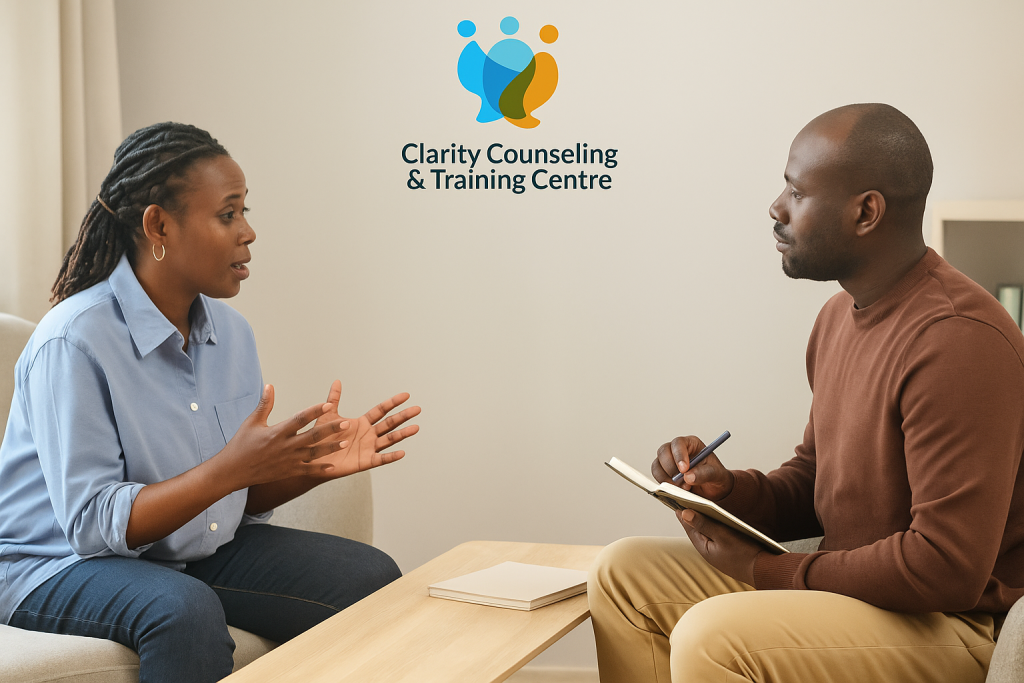
2. When Someone You Care About Pulls Away
In the midst of doing life, you notice your friend, the one who used to talk too much, now types “I’m fine” like it’s punctuation. You ask how they’re doing, they say “Good.” And you both know that’s a lie.
You want to fix it, but you’re afraid of saying the wrong thing.
Counselling teaches you something simple; that you don’t have to fill the silence to show care.
You can say, “You don’t have to talk, but I’m here.” And then you sit. No advice. No pep talks. Just presence.
That’s empathy and not the Instagram kind with fancy quotes, but the kind that just stays not to fix, but feel with. When people sense you can sit with their pain without judgment, they begin to trust you with their truth.
Sometimes, love doesn’t speak. It simply stays.
3. When Parenting Feels Like a Battle You’re Losing
The toddler is screaming because you poured the milk in the wrong cup. Meanwhile the teenager just slammed the door after shouting, “You don’t get it!” and honestly, maybe you don’t.
You feel your pulse climbing. But this time round you switch the toddlers cup, pick them and walk into your teen’s room, and you try something new.
You say, “You’re angry because you feel I’m not listening,” or, “You’re frustrated because you want more freedom.” Then almost immediately the storm becomes a drizzle. That’s reflective listening. It doesn’t end arguments but it turns them into conversations by naming what’s underneath the noise.
Oftentimes your child doesn’t always need a calm parent. They need a connected one. It helps children feel seen while helping parents rediscover their patience. Because every connection with your child begins with one inside yourself.
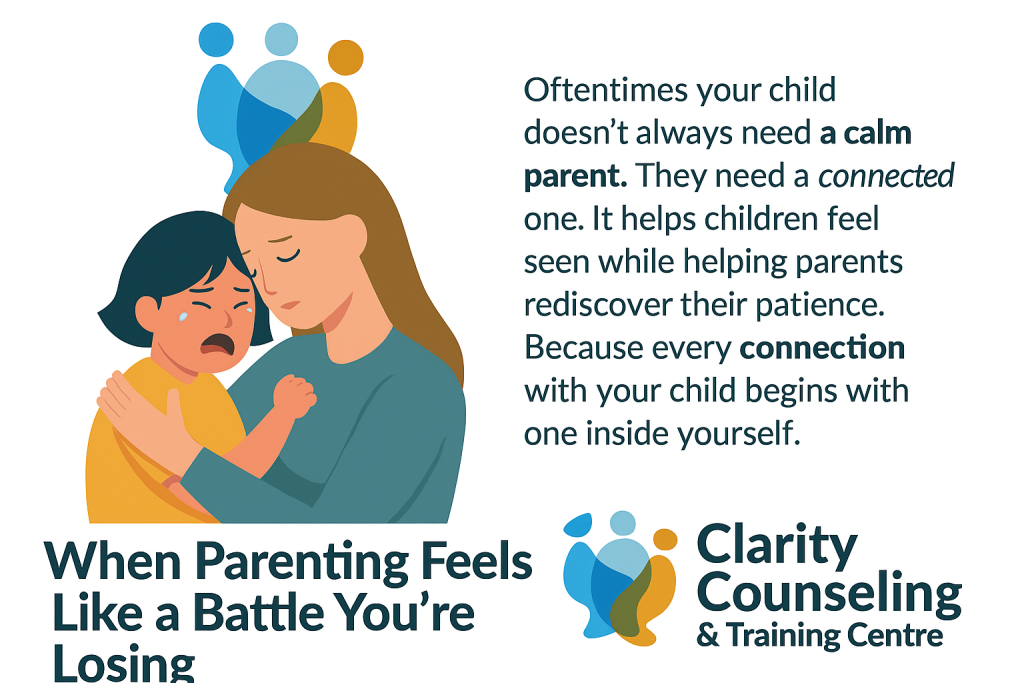
4. When You Need to Tell the Truth Without Breaking Trust
There’s a moment before feedback where you can almost hear the tension breathing.
For example if you’re the manager and you have to say something uncomfortable, you can go the easy route: “You’re always late.”
Or you can go the honest-but-kind route: “I’ve noticed you’ve been running late, and I’m worried it’s affecting your work.”
For a HR officer, instead of saying, “You never meet deadlines,” you say, “I’ve noticed some missed deadlines, and I’m concerned about how it’s affecting the team.”
Same truth. Different tone. One sounds like an attack while the other sounds like care. That’s the difference non-judgmental communication makes. It doesn’t remove the sting. It just removes the shame. The goal is to be honest, but not harsh.
It’s a counselling skill that replaces blame with respect. When people feel safe, they can hear you. And when they feel heard, they can change. Empathy doesn’t water down truth, it instead delivers it in a way that builds trust.
5. When Comfort Isn’t in Words, But in Presence
A friend loses a parent and in a room heavy with casseroles and condolences you open your mouth, close it again. Everything you think of sounds cheap. But softly you say, “This sounds really hard.” Nothing fancy but you stay and listen.
That’s an empathic presence. The quiet courage to sit beside someone’s pain without needing to rescue them from it. It’s one of the most human acts of love, because sometimes, presence says more than comfort ever could.
6. When You Finally Realize Burnout Isn’t Weakness
It starts small. You forget things. You stare at screens longer than you should. Then one morning you wake up and it feels like the world is sitting on your chest.
You tell yourself, Just be strong. But strength isn’t pretending. It whispering the truth even to yourself.
“I’m tired because I’ve been carrying too much.”
“I’m angry because I feel unseen.”
That’s self-awareness. It’s how healing begins — quietly, honestly, alone in your room before sunrise. Accept that you’ve been pushing for months; it’s the foundation of emotional intelligence.
Then name what’s real, because it loses its power to control you. That’s not a weakness but emotional freedom.
7. When Leadership Becomes Less About Talking, and More About Listening
Good leaders talk. Great leaders listen. But the rare ones? They listen even when it’s uncomfortable. Whether you’re leading a classroom, a ward, a church, or a company, people rarely remember your instructions but they always remember how you make them feel.
Counselling skills like empathy and reflective questioning transform leadership. They help you move from managing to mentoring. You stop controlling and start connecting because leadership, at its core, isn’t about being in charge.
It’s about being trusted and learning to listen differently. You don’t need to become a therapist to communicate with empathy, lead with calm, or connect with understanding. You just need to learn how to listen differently.
Many professionals who’ve taken Clarity Counseling Kenya’s Basic Counselling Skills Course say the same thing: “This didn’t just change how I lead. It changed who I am.” It’s a hands-on, 8-week program for teachers, parents, HR professionals, health workers, NGO teams, spiritual leaders, and community advocates — people who want to strengthen how they connect, guide, and care.
You’ll learn how to:
- Listen actively and hear what’s truly being said.
- Communicate empathetically, without fixing or rescuing.
- Recognize your triggers and regulate emotions under pressure.
- Set healthy boundaries, so you can help others without burning out.
The result? Clearer communication. Stronger relationships. A more grounded, emotionally intelligent version of yourself at home, at work, and within.
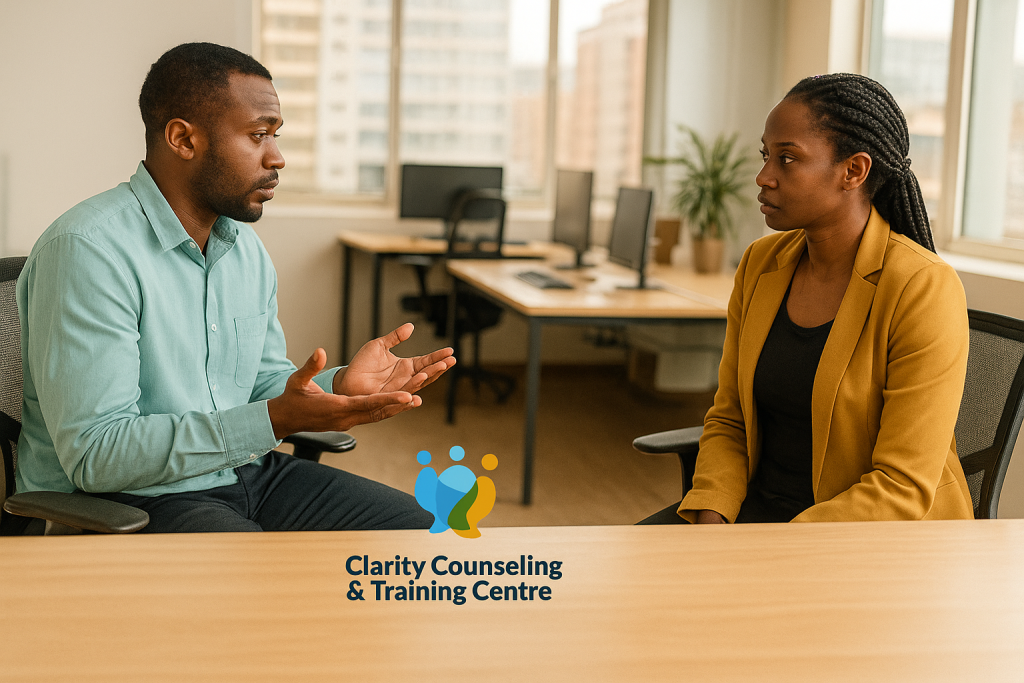
Learn to Listen with Presence, Speak with Care & Lead with Heart.
Imagine a world where every conversation felt safe enough for honesty. Where disagreement led to understanding and silence wasn’t awkward, but healing. That’s what happens when counselling skills enter everyday life.
So if you’ve ever thought, “I wish I knew how to handle people better,” or “I want to be someone others can open up to,” this is your invitation. Start your journey with Clarity Counseling Kenya’s Basic Counselling Skills & Self-Awareness Course.
Learn to listen with presence. Speak with care. Lead with heart. Because sometimes, the most powerful thing you can say is nothing at all.
